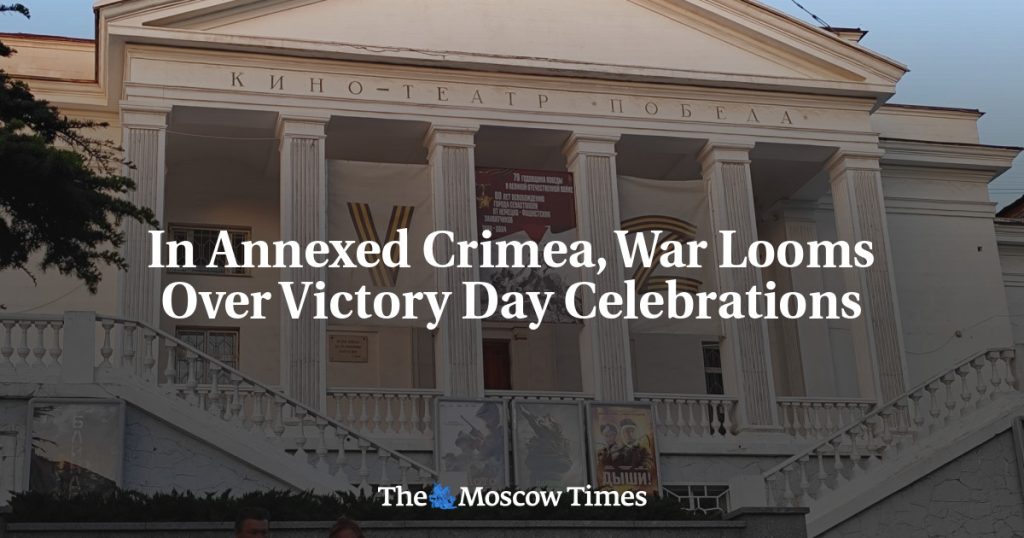The setting in Sevastopol, Crimea, reveals a scene of reverence and patriotism as Russian flags flutter beside the graves of soldiers killed in Moscow’s war against Ukraine. Olga and Vladimir, a retired couple, visit the cemetery on the eve of Victory Day to honor the fallen soldiers and express confidence in a Russian victory. They view the annexed Crimean peninsula as their land, emphasizing the significance of being prepared for conflict, unlike in past invasions. This sentiment reflects a desire to emulate the heroic acts of their ancestors in the current conflict with Ukraine.
President Putin’s invocation of neo-Nazi atrocities in his Victory Day speech suggests a narrative that justifies Moscow’s military actions in Ukraine as a means of combating alleged Ukrainian aggression. The anticipation of Ukrainian airstrikes on Victory Day in Crimea highlights the ongoing tensions in the region, with Ukrainian forces targeting strategic Russian positions. Despite the risks, local residents like Yana express a desire for peace and an end to the conflict, emphasizing the importance of a resolution that benefits both parties rather than seeking domination.
In a revealing conversation with retired navy captain Mikhail Anokhin, the challenges faced by the Black Sea Fleet due to Ukrainian attacks are brought to light. Anokhin acknowledges the need for military reform to address corruption and ensure the fleet’s protection. The presence of Russian servicemen in Sevastopol underscores the militarization of the region, with soldiers like Aleksandr reflecting on the legacy of past conflicts and the responsibility they bear as part of the Russian military.
The impact of the conflict on Crimea’s tourism industry is evident, as rocket and drone attacks have deterred millions of vacationers from the once-popular resort destination. This shift has led to a sense of nostalgia among locals like Anna, who laments the loss of friendly relations between Russia and Ukraine that characterized the pre-2014 era. Despite the challenges, the spirit of Victory Day endures among the residents, albeit tinged with a sense of uncertainty and sadness regarding the outcome of the ongoing conflict.
The complexities of the situation in Crimea and eastern Ukraine are mirrored in the personal stories and perspectives of individuals like Olga, Vladimir, Yana, and Anokhin, offering insight into the varied sentiments surrounding the conflict. While some view the military actions as a necessary defense against perceived threats, others express a longing for peace and reconciliation. The juxtaposition of patriotic fervor and a desire for stability underscores the multifaceted nature of the conflict and the impact it has on individuals and communities in the region.















